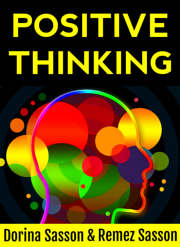
In a world full of stress, mental health has taken center stage as a crucial aspect of overall well-being. With the traditional barriers to seeking help, such as stigma and accessibility, being progressively dismantled by technology, digital solutions for mental health support present a new frontier in care.
This exploration seeks to unwrap the innovative and impactful ways technology is being leveraged to offer support, manage symptoms, and foster community for individuals facing mental health challenges.
Gamification and Mental Health
The integration of gamification into mental health strategies is a novel approach that engages users in their treatment plans.
Browse our online courses on meditation, positive thinking, overcoming procrastination, confidence, and freedom from distractions.
By applying game design elements in non-game contexts, such as quests and rewards for reaching health goals, people are more likely to remain committed to their mental health.
This innovative strategy makes the process of seeking help more engaging and can also significantly boost motivation and adherence to treatment protocols.
Understanding the nuances of digital patient engagement is crucial for enhancing mental health outcomes. By promoting better communication between patients and healthcare providers, technology can help deliver higher-quality care while also reducing overall costs.
The Rise of Teletherapy
Teletherapy has redefined the landscape of mental health care, making therapy sessions accessible from the comfort of one’s home.
This digital solution has not only bridged the geographical divide between therapists and clients but has also introduced a layer of convenience and anonymity, encouraging more people to seek help.
Mobile Applications: A Pocket-Sized Therapist
In an era where smartphones are ubiquitous, mobile applications dedicated to mental health have burgeoned.
These apps offer a range of services, from mood tracking and stress management techniques to cognitive behavioral therapy (CBT) exercises, thus offering support at the tip of your fingers anytime, anywhere.
Online Support Communities
The power of community should never be underestimated, especially when it comes to mental health. Online forums and social media platforms have become havens for people seeking empathy, understanding, and advice from those who have experienced similar challenges.
These digital spaces offer a sense of belonging and support, which can be incredibly healing.
Wearable Technology for Mental Health Monitoring
Wearable technology, including fitness trackers and smartwatches, now goes beyond tracking physical health metrics.
These devices are increasingly equipped with features to monitor sleep patterns, heart rate variability, and other indicators of mental distress, offering insights and early warnings about an individual’s mental health status.
Virtual Reality: The Next Frontier
Virtual Reality (VR) technology is on the cusp of revolutionizing mental health support by offering immersive therapeutic experiences.
From simulating social situations for anxiety management to recreating therapeutic settings for PTSD patients, VR has the potential to significantly enhance traditional therapy methods.
Big Data and Predictive Analytics
With the surge of big data, predictive analytics have become an invaluable tool in understanding and addressing mental health issues.
By analyzing vast amounts of data from various sources, mental health professionals can identify patterns and predict trends in mental health, leading to more personalized and effective treatments.
This data-driven approach can enhance early detection of mental health issues, allowing for earlier intervention and better outcomes.
Artificial Intelligence and Chatbots
AI-driven chatbots are emerging as an accessible first line of support for anyone hesitant to seek professional help.
These chatbots can provide immediate, albeit basic, emotional support and guidance, making them a crucial step in the journey towards mental wellness for many.
Enhancing Mental Health Literacy
One of the key benefits of digital solutions for mental health is their role in enhancing mental health literacy among the general population.
Through accessible content and educational resources, people are empowered with the knowledge to recognize symptoms in themselves or others, understand the importance of seeking help, and navigate the myriad of available digital tools.
This increased awareness and understanding can demystify mental health issues, reduce stigma, and encourage a more proactive approach to mental wellness.
Conclusion
The digital world offers a new realm of possibilities for mental health support, breaking down traditional barriers to access and offering innovative tools for care.
While these digital solutions are no replacement for professional therapy, they serve as valuable resources in the mental health toolkit.
As technology continues to evolve, the future of mental health support looks promising. It offers new avenues for care that are accessible, personalized, and, most importantly, effective.

